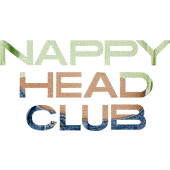“This that burn, this ain’t no perm. This that nappy, this that urb’.” –Beyoncé, “MY POWER”
When you hear the word “nappy” as a Black person, how do you react? Do you find yourself feeling utter disgust or shame? Smiling with pride? Feeling a bit confused? Or a combination of all of these emotions at once? No matter how nappy makes you feel, all of your sentiments are valid — nappy has meant many different things to many different groups of people. To some, it is associated with being dirty, unkempt, unclean and overall, ugly. To others, it has become a beacon of pride associated with natural hair, and of course one’s Blackness. Still, if we know one thing for sure; it’s that it definitely didn’t start out as a compliment.
The word “nappy,” though originally used to describe fuzzy things like fabric and yarn, started becoming a way to describe Black hair sometime around the 1800s during a time when the majority of Black people were enslaved. While there is no single individual that can be directly credited with what we know to be the current definition of nappy, it was heavily used by European slave traders, who were disgusted by the texture of African hair. Many of them were unfamiliar and even confused by how Africans had tight, kinkier hair as opposed to their loose, straight hair.
Since its inception, “nappy” or “nappiness” has been used as a derogatory term that often scorned Black people for the natural hair that grew out of their heads. With such a stigma surrounding Black hair, especially those of coiler textures, many people turned to cosmetic products in order to change the appearance of their hair, hoping to make it seem more “manageable” or “presentable” since it wasn’t seen as acceptable at the time. It’s no coincidence that the first Black woman in America to reach millionaire status was Madame C.J. Walker, who was selling hair care and grooming products in a world where Black hair was constantly put down. Before products that empowered and embraced natural hair came to the scene, hot combs, flat irons, and relaxers were often used by Black people in hopes of assimilating and adapting to the status quo.
Despite Black hair facing a history of shame because of racism and anti-Blackness, the 1960s and 1970s would forever change how it was perceived by the masses. During this time, what is now known as the Black Power Movement came to a rise, urging Black people to not only fight against the oppressive white establishment, but to embrace the natural-born features that they had once been told to despise. Hair care products such as Afro Sheen and Ultra Sheen took the beauty industry by storm, promoting the idea that Black features were not only acceptable, but luxurious to have. “Dyed, fried, and laid to the side” would no longer be the standard. Instead, it would be replaced by voluminous afros and stylish braids, paying homage to the mother continent of Africa and the heritage that came out of it.
The early natural hair movement of the 1970s served as the catalyst for shaping the way we view natural hair today. It’s influence runs so deep that people have even started to reclaim the once-forbidden word of “nappy.” Though there is an incredibly sensitive history behind it, Black people in the natural hair community have started to reappropriate the term to mean one of endearment instead of offense. In 1999 Gloria Watkins, formerly known as “bell hooks” published Happy to Be Nappy, a book marketed towards young Black children that celebrated kinky and coily hair types. And in 2017, Nappy Head Club was founded by Rachel Topping and Rikki Richelle, two sisters from the DMV who felt the need to show the beauty in 4c-textured Black hair”. While it may have started out as a way to be demeaning, many are working hard to break this cycle and turn napiness into a movement that empowers those with coarser hair types.
While our nappy origins have been notoriously rooted in indignity, it’s important for us to understand that we as Black people have the power to change the narrative when it comes to our bodies. Though the structure of white supremacy has defined us for centuries, we now have the tools as a people to look back on the past and have nuanced discussions about who we are, and who we refuse to be. Our nappiness no longer has to be a curse, but rather a blessing from our ancestors. It is a cultural expression that we are the sole possessors of, no one else. Now more than ever is the time to embrace yourself, not only as a form of resistance, but as a form of cultural preservation in a world that wants you to forget who you are.
 About the Author: Maryam Azeeza Muhammad is a poet, womanist, and journalism student from Bridgeport, CT currently attending Temple University in Philadelphia, PA.
About the Author: Maryam Azeeza Muhammad is a poet, womanist, and journalism student from Bridgeport, CT currently attending Temple University in Philadelphia, PA.




JOIN THE DISCUSSION (0 comments)